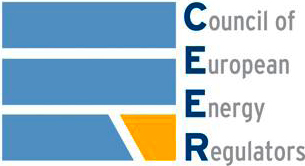
CEER response to the EU Greenpaper "A 2030 Framework for Climate and Energy Policies"
The European Commission’s green paper on, currently out for consultation, has 4 main parts: targets; instruments; competitiveness and security of supply; and effort sharing.
The CEER response to the Green Paper focuses on 6 key strategic points of relevance to regulatory activities:
- Optimal regulatory design benefits from clarity over energy sector goals
- Reaffirming the importance of achieving rapid implementation of the 3rd Internal Energy Market (IEM) Package
- Delivering investment and consumer protection requires a stable market-based framework, implying structural reform of EU ETS
- Importance of ‘total system’ functionality
- Importance of (intelligent) networks
- Coherence as a key principle in formulating 2030 arrangements
CEER, in its response, reaffirms the importance of rapid implementation of existing laws which is necessary to achieve an EU IEM. CEER’s vision of the IEM includes a 2020 Vision for delivering benefits to energy consumers (which was the focus of a separate annual customer conference this month).
CEER believes that achieving the IEM can help to deliver the 2030 objectives and that a stable policy framework to 2030 will assist more efficient investment. A carbon price is a key element of a market-based framework, but the current ETS design is undermining efficient investment. Although sectoral target setting is outside of our remit, uncertainty in relation to the proportions of RES-E on the system has significant planning (and cost) implications for regulators in managing system balancing and financial arrangements. Similarly, a single greenhouse gas (GHG) target does not assist with forward planning / network coordination. A carbon price is a key element of a market-based framework for achieving this, but the instability of the current ETS design - arising from a fixed supply in the face of a steep demand curve - undermines this goal.
CEER believes that the Green Paper places insufficient emphasis on the role of gas and electricity networks in supporting 2030 ambitions. Consequently, CEER underlines the role of smart grids and the importance of coherence as a key principle in formulating the 2030 climate and energy framework.